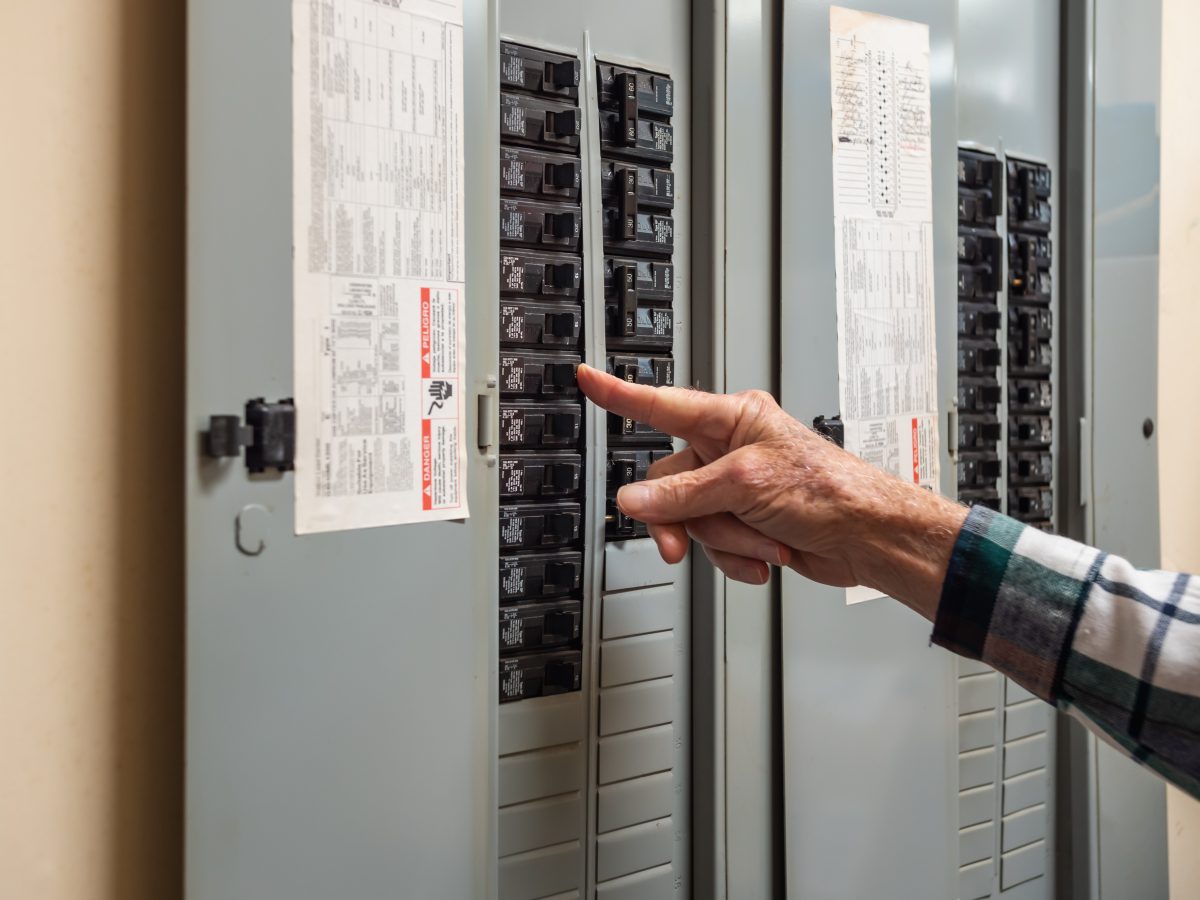Circuit Breaker Replacement: How Do You Choose the Right New Panel?
You’re making dinner when suddenly, your fridge turns off. This loss of power is the second time it’s happened this week, so you are sure you must go to the circuit breaker panel and flip the switch for your kitchen. Unfortunately, a few days later, it happened again. This scenario is more than just frustrating; it signifies needing a circuit breaker replacement.
Circuit breakers can last for quite a while, sometimes up to 40 years, with proper care and maintenance by professional electricians. But when you notice signs that your circuit breaker has seen better days, it’s best to replace it. That’s when you contact the professionals at RS Martin!
What Is a Circuit Breaker Panel?
The circuit breaker panel in your home is where all your electrical circuits meet to distribute electricity through the building. You will likely recognize it as a flat gray or brown metal panel in your home, typically in the garage, basement, or utility closet. The panel’s total power varies based on the home’s needs, and the electricity is divided into branch circuits to travel throughout the house.
The panel comprises several components to keep your electricity flowing safely.
- Branch Circuit Breakers: Typically arranged in two rows, the branch circuit breakers are the smaller switches that each control the flow of electricity through one circuit in your home. When a circuit breaker trips, it’s a branch breaker that you must flip to restore power to that circuit in the home.
- The Main Breaker: This is usually the breaker at the top or the bottom of the two rows of branch circuit breakers. The main breaker controls the power that extends into all the smaller branch breakers.
- Hot Bus Bars: The power to all the branch circuit breakers flows through the hot bus bars, which get powered by the main breaker.
When you experience frequent power outages on specific circuits or your appliances behave unusually, it may be time to inspect your circuit breaker. If the electrician discovers your panel is malfunctioning, replacing some or all the panel’s components mentioned above may become necessary.
How Do I Choose a Circuit Breaker Replacement Panel?
In most homes, the standard breaker panel is 200 amps. However, depending on your home and your electrical system needs, you might require a 300- or 400-amp panel. However, the best way to determine what kind of panel will replace your current malfunctioning panel is to speak with a professional. They can make the decision on the best panel for your home and change it safely for you.
Signs that You May Need to Replace Your Circuit Breaker Panel
Random, frequent outages aren’t the only sign that you need a breaker box replacement. Other signs indicate you may need a replacement, including:
- You’re replacing fuses often
- The panel feels hot when you touch it
- The fuse box has rust or other visible signs of wear
- There’s a burning smell as you approach the panel
- The panel is more than 25 years old, as it may be out of date when referencing modern electrical codes, and need replacement by law
- You hear noises like buzzing or crackling in your outlets
- Lights throughout your home flicker often
Breaker box replacement is something you should never try to evaluate on your own. If you have any concerns or questions about your electrical system, it’s best to contact the professionals.
Why Should I Replace an Electrical Panel?
Replacing faulty breakers that you suspect are malfunctioning is a safety precaution. When a breaker box isn’t working correctly, you are at an increased risk of electrical fires or damage to your appliances or electronic devices because of improper voltage.
Your breaker box might require replacement simply because there have been so many repairs on it that it is no longer feasible to try to replace parts, and instead, it makes more sense to replace the box entirely. Speaking with a certified electrician about your circuit breaker replacement concerns can help you determine if a replacement is necessary.
Can You Do Your Own Circuit Breaker Replacement Work?
You can do many DIY projects in your own home, but electrical work is not one of those projects. As with all electrical work, it is best to leave any issues with your electrical system, including circuit breaker replacement, to the professionals. Unless you are a trained electrician, you cannot be sure that you are choosing the right panel for your home and installing it properly.
The National Electric Code, also known as the NEC, has expanded since 1999 to include the requirement of AFCI (arc-fault circuit interrupters) protection for all residential circuits. When an electrician installs your new circuit breaker box, the law requires that they install an AFCI circuit breaker as the replacement. You must consult a certified, licensed electrician before doing any electrical work in your home.
Get in Touch with Our Professional Electricians Today!
When the lights are flickering in your bedroom, your fridge loses power frequently, or your electric oven has started working less efficiently out of nowhere, it’s time to call the professionals. At RS Martin, we have the team to help you with all your electrical system needs, including changing a circuit breaker. Get in touch with us today if you think you need a circuit breaker replacement.


 24 Hour
24 Hour